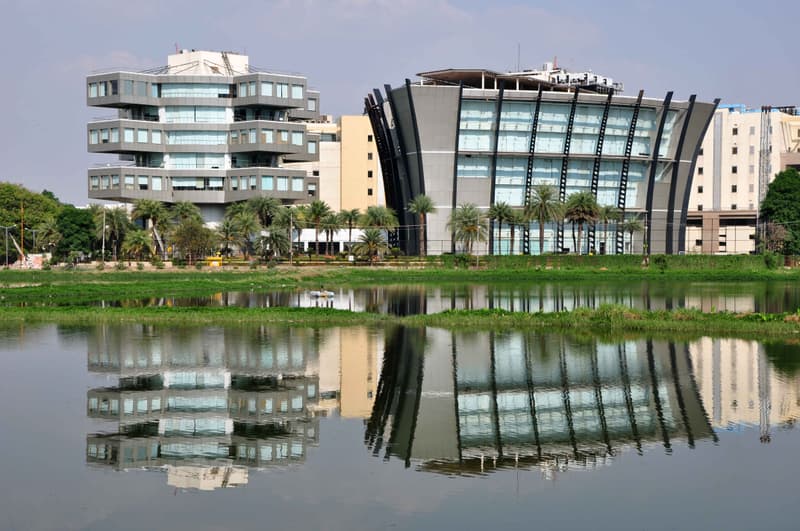
Economic impact of immigration
Immigration has been a driving force shaping the economic landscape of nations throughout history. The impact of immigration on economies is a complex and multifaceted phenomenon, with implications for labor markets, economic growth, innovation, and public finances. In this comprehensive article, we will delve into the economic impact of immigration, examining both the challenges and benefits associated with the movement of people across borders.
Labor market dynamics
One of the most immediate and visible impacts of immigration is on the labor market. Immigrants often contribute to the workforce, filling gaps in industries facing labor shortages. This influx of labor can drive economic growth by increasing productivity and output. However, concerns are often raised about potential competition with native workers for jobs, leading to debates about the overall impact on employment and wages.
Job creation and entrepreneurship
Contrary to the belief that immigrants take jobs away from locals, studies have shown that immigrants can be significant contributors to job creation. Many immigrants become entrepreneurs, starting businesses that not only provide employment opportunities for themselves but also for native workers. The entrepreneurial spirit brought by immigrants can foster innovation and contribute to the vibrancy of the business landscape.
Skill diversification and innovation
Immigrants often bring diverse skills and talents to their host countries. This skill diversification can lead to innovation and enhanced competitiveness in certain industries. Highly skilled immigrants, such as scientists, engineers, and researchers, contribute to advancements in technology and research, fostering an environment of progress and economic development.
Demographic trends and aging populations
Immigration can play a crucial role in addressing demographic challenges, such as an aging population. In many developed countries, the native-born population is aging, leading to concerns about a shrinking workforce and increased dependency on social welfare systems. Immigration helps offset these trends by bringing in younger populations that can contribute to the labor force and contribute to tax revenues.
Consumer spending and economic demand
Immigrants, like any other residents, are consumers. As they become part of the workforce and society, they contribute to consumer spending, driving demand for goods and services. This increase in demand can have a positive impact on various sectors of the economy, including retail, housing, and entertainment, leading to economic growth.
Wage effects and income inequality
The relationship between immigration and wages is a subject of ongoing debate. While some argue that an increase in the labor supply due to immigration may put downward pressure on wages, others contend that the overall impact on wages is minimal. It is important to consider factors such as the skill level of immigrants, the specific industries involved, and the overall health of the economy in assessing the impact on income distribution.
Fiscal impact: taxes and public services
The fiscal impact of immigration encompasses both the taxes paid by immigrants and the public services they use. Studies suggest that, over the long term, immigrants tend to be net contributors to public finances. While they may use public services such as education and healthcare, their contributions through taxes often outweigh these costs. The fiscal impact, however, can vary based on factors like the skill level of immigrants and government policies.
Social welfare and public opinion
Public perception of the economic impact of immigration often influences policy debates. Concerns about the strain on social welfare systems, particularly in areas such as healthcare and education, can lead to calls for stricter immigration policies. It is crucial for policymakers to strike a balance between addressing these concerns and recognizing the broader economic contributions that immigrants make to society.
Integration challenges and social cohesion
Successful integration of immigrants into society is essential for maximizing their economic contributions. Challenges related to language barriers, cultural differences, and discrimination can hinder integration efforts. Policymakers must prioritize initiatives that promote social cohesion, fostering an environment where immigrants feel welcomed and can fully participate in the economic and social life of the country.
Global talent mobility and economic competitiveness
In an era of global interconnectedness, the ability to attract and retain skilled workers has become a critical factor in economic competitiveness. Countries that position themselves as attractive destinations for talent can benefit from the expertise and innovation that skilled immigrants bring. Policies that facilitate global talent mobility contribute to a dynamic and competitive economy.
Economic shocks and resilience
The economic impact of immigration is not static and can be influenced by external factors, including economic shocks and crises. During periods of economic downturn, concerns about job scarcity may lead to increased scrutiny of immigration policies. However, immigrants can also contribute to economic resilience by filling essential roles and supporting industries that are vital during challenging times.
Policy considerations for optimal impact
To harness the positive economic impact of immigration, policymakers need to adopt well-designed and flexible policies. These policies should address labor market needs, promote integration, and ensure that immigrants have access to education and training opportunities. Striking a balance between economic considerations, social cohesion, and humanitarian concerns is essential for creating a comprehensive and effective immigration strategy.
The economic impact of immigration is a multifaceted and dynamic phenomenon that requires careful analysis and consideration. While challenges exist, the overall contributions of immigrants to host economies are substantial. From addressing labor market needs to fostering innovation and entrepreneurship, immigrants play a pivotal role in shaping the economic landscape of their host countries


